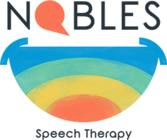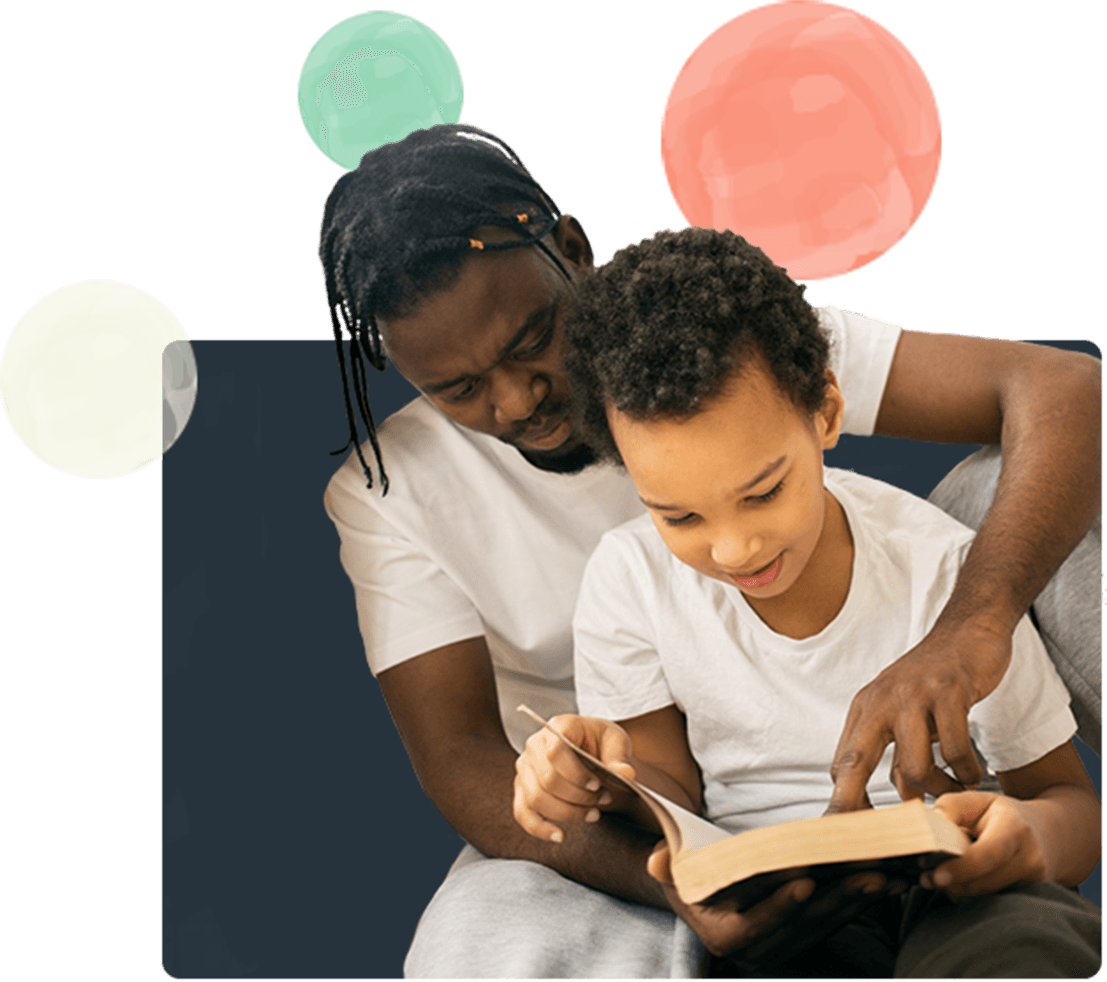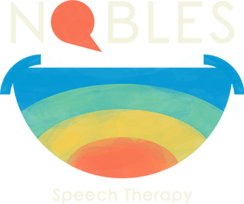We accept CareFirst BlueCross BlueShield, United Health Care, Wellpoint, Maryland Physician Care Insurance, and Kaiser Permanente.
Help for Kids Struggling With Receptive Language
Private speech therapy for children to help them improve their ability to read, understand spoken instructions more readily, and follow directions.
Speech Therapy for Ages 1-18
Share this page:
Language is more than just words; it includes what we hear, read and see (pictures, symbols, sign language). A receptive language disorder is a broad diagnosis that means someone has difficulty understanding language. Speech therapy for kids can diagnose, treat and ultimately improve the communication skills of children with many types of language and speech disorders, including those with a receptive language disorder.
Receptive language disorders are often mixed with or masked by an expressive language disorder (a disorder in which someone has difficulty expressing language). For this reason, it can be challenging to assess this kind of disorder, and an assessment by a speech-language pathologist is usually needed for a precise diagnosis.
Read more about
the difference between Expressive vs. Receptive Language Disorder.
Receptive Language Disorders in Children
Mixed Messages
What is a receptive language disorder? If your child has a receptive language disorder, they have trouble processing the language information that their brain receives. This usually has little to do with their hearing or intelligence. Instead, their brain processes information differently.
The Dots Aren't Connecting
If you miss a few numbers in a dot-to-dot puzzle, the whole picture might look completely different. Children with receptive language disorders often have trouble understanding what is going on around them. This lack of understanding can connect the wrong or missing dots and take actions that don't always make sense. For example, a child with a receptive language disorder may have trouble following directions correctly, having conversations, or even paying attention or listening at all.
You Are Not Alone
It is often hard to know what causes a language disorder. Many language disorders have no known cause, and others are associated with different conditions, such as hearing, autism, or epilepsy. As a parent, it can be challenging when you have an instinct that something is off, but you aren't sure what it is. When you aren't sure of the cause, it can help to focus on the solution. Having a professional assessment can ease your worries and give you a starting point to work from.
Language Therapy is the Answer
There is help available for a receptive language disorder. The role of a speech-language pathologist (SLP) is to test, diagnose and treat a wide range of speech, voice, and language disorders, including receptive language disorders. Once a disorder is diagnosed, an SLP can develop an appropriate treatment plan to improve your child's communication abilities, along with their self-esteem and social skills.
Signs of a Receptive Language Issue
The symptoms of a receptive language disorder vary widely. For example, some children may have a problem with spoken words, while others may have difficulty understanding grammar, underlying meanings, or complex sentences. Having said this, here are some general signs you can watch for.
Younger Children
Have Difficulty:
- Understanding concepts of before/after
- Following directions
- Listening to stories and understanding what is happening
- Understanding Wh-questions (e.g., who, what, where?)
- Understanding main ideas
Older Children
Have Difficulty:
- Learning and understanding vocabulary
- Figurative language
- Making Inferences
- Reading comprehension
- Understanding main ideas and themes
Receptive Language Disorder Treatment Outcomes
After proper testing and diagnosis, we will work with you to develop a treatment program with suitable goals and outcomes to help your child improve their communication skills and help them reach their full potential.
What are receptive language skills exactly? Some examples of receptive language skills and the goals and outcomes of language therapy for each are:
Learning to Follow Directions
Increased understanding of words leads to children being better able to follow instructions and directions. Of course, that doesn't always mean your child will listen to you, they are still a kid, but they will have a better ability to understand what is expected.
Better Understanding of Figurative Language
Figurative language includes things like figures of speech, metaphors, or familiar sayings. Children with receptive language disorders often take jokes too seriously or at face value, causing them to misunderstand the speaker's meaning. One of the goals of speech therapy is to teach children how to recognize the figurative language.
Improving Reading Comprehension
Some children with receptive language disorders struggle with written words. Therefore, building reading comprehension is another goal of language therapy and can improve a child's ability to understand and, as a result, their long-term educational outcomes.
Improving Vocabulary
One of the easier-to-spot signs that a child may be struggling with a language disorder is their limited use or repetitive use of the same words. In some cases, it is difficult for them to learn and understand the meanings of new words. In these cases, one of the goals of therapy is to stretch a child's vocabulary, which helps them improve their social interactions.
Understanding Concepts
In day-to-day life, you may not realize how many context clues you use every day to understand what is happening and how things work. These "clues" are part of language and how we communicate. Receptive language disorders often cause people to miss these clues. An SLP will work with your child to learn techniques to better recognize the "language clues" in the world around them.
A reminder that the above treatment goals are examples. As an SLP, we will develop a customized treatment plan suited to your child's specific needs. This is especially important when treating a
language disorder, as treatments vary widely depending on age, specific problem areas, and other factors.
How Receptive Language Speech Therapy Works
Step 1. Schedule Initial Consultation
We'll have a brief call to discuss your concerns about your child's communications skills, developmental milestones, red flags, and other areas of assessment.
Step 2. Assessment
We evaluate your child to industry-standard speech and language development benchmarks. Based on the results, we create a step-by-step treatment plan built around your child's needs.
Step 3. Treatment
We implement the treatment plan in series of fun, 30-minute one-on-one in-person or virtual sessions with your child. You'll receive updates after each session with supplemental materials for practice and reinforcement.
If you're concerned about your child's language skills, don't wait any longer for an assessment and therapy.
Please take the next step today and contact us for your confidential consultation.
Share this page:
Why Choose Us for Receptive Language Therapy
Built Around Your Child
We implement successive building blocks to help your child master foundational communication skills based upon the initial assessment.
Each week your child builds confidence for interpersonal interactions, more outgoing social engagements, and sustained academic achievement.
Exciting and Fun
Creative teaching techniques combined with patience, understanding, and an authentic rapport with your child create a safe space for overcoming insecurities and learning new skills.
These enjoyable one-on-one sessions transform reluctant attendance into an enthusiastic engagement.
Team Effort
We understand that it takes a village to raise a child. That's why we coordinate our strategy with your school and other providers. We also keep you actively involved with weekly updates and materials for at-home practice and reinforcement.
Professional Speech Therapy Services
Our speech therapy programs keep kids and their family's needs in mind. Each child's treatment plan is individualized to be appropriate for their age and abilities. For example, speech therapy should be a fun activity for children to look forward to rather than a chore. We also teach parents what they can do at home to help a child with a receptive language disorder.
As certified child speech-language pathologists, we specialize in evaluating and treating children with speech and language disorders. We understand that each child is different and responds to therapy differently. For this reason, we gained experience and certification in a wide range of specialized techniques, making it easier for us to find the most effective treatment for your child.
Keeping It Real
Speech therapy can offer real solutions. Contact us today for your confidential consultation to get practical help and answers about your child's language disorder.
Share this page:
Is Receptive Language Disorder a Learning Disability?
There is some debate over this because the line between language disorders and learning disabilities is blurry. There is no doubt that
learning
disabilities
and language disorders are closely related. However, a child is often diagnosed with a learning disability, while the root is a language disorder.
Related Topics:
Sources:
- Language and Speech Disorders in Children, Centers for Disease Control and Prevention
- Childhood Speech and Language Disorders in the General U.S. Population, Speech and Language Disorders in Children: Implications for the Social Security Administration's Supplemental Security Income Program.
- Preschool Language Disorders, American Speech-Language-Hearing Association
- Receptive language disorder, Better Health Channel
- Spoken Language Disorders, American Speech-Language-Hearing Association
- Types of Learning Disabilities, Learning Disabilities Association of America
- Receptive Language Delay,
Speech and Language Kids




